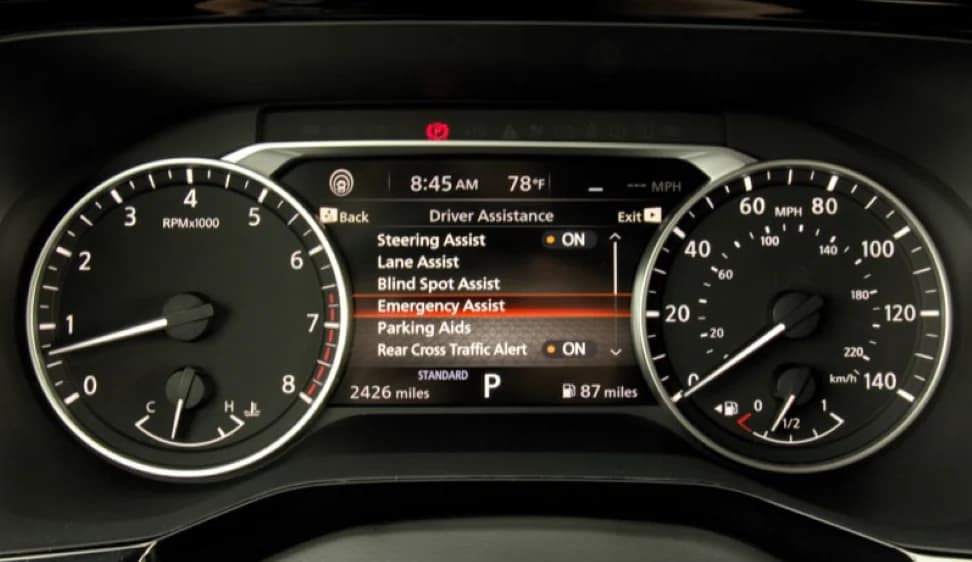 Used car lot showcasing various makes and models, emphasizing the importance of mileage in vehicle selection
Used car lot showcasing various makes and models, emphasizing the importance of mileage in vehicle selection
Shopping for a used car can be an exciting yet daunting process. Among the many factors to consider, mileage stands out as a crucial indicator of a vehicle’s condition and potential lifespan. Understanding What Is A Good Mileage For Used Car is essential to making an informed decision. This comprehensive guide from cars.edu.vn, your trusted automotive resource, will walk you through everything you need to know about used car mileage, helping you navigate your purchase with confidence.
Decoding Used Car Mileage: What’s Considered Good?
When evaluating used car mileage, a useful starting point is the average annual mileage. A commonly accepted benchmark is that vehicles typically accumulate around 10,000 to 12,000 miles per year. To gauge whether a used car has good mileage, you can compare its odometer reading against its age. For instance, a 5-year-old car with 50,000 to 60,000 miles would fall within the good mileage range, aligning with the average annual accumulation. Lower mileage for the car’s age often suggests less wear and tear, making it potentially more desirable. However, it’s important to remember that mileage is just one piece of the puzzle. Factors such as the car’s make, model, maintenance history, and the conditions it has been driven in all play significant roles.
High Mileage on a Used Car: Red Flag or Just a Number?
The notion of 100,000 miles as the threshold for high mileage has been a long-standing perception. Historically, crossing the 100,000-mile mark was often seen as a sign that a vehicle was nearing the end of its usable life. However, automotive engineering advancements have significantly extended the lifespan of modern vehicles. Many cars today, especially with diligent maintenance, can reliably surpass 100,000 miles, and certain brands like Toyota and Honda are renowned for frequently exceeding 200,000 miles.
While 100,000 miles still signifies a point where cars may require more frequent maintenance and potentially more costly repairs, it’s no longer an automatic indicator of a vehicle’s demise. Interestingly, a car with high mileage accumulated primarily from highway driving might actually be in better mechanical condition than a car with lower mileage predominantly from stop-and-go city driving. Highway miles generally cause less stress on engine and braking components compared to the harsher conditions of city traffic.
Why Mileage Matters (But Isn’t Everything) in Used Cars
Mileage serves as a practical indicator of the extent of a car’s usage and the associated wear and tear. Each mile driven contributes to the overall aging of vehicle components. However, the crucial point is that mileage alone doesn’t tell the whole story. The manner in which a car has been driven and, more importantly, maintained, has a profound impact on its longevity and reliability. Consider this scenario: a 3-year-old car displaying 140,000 miles primarily accumulated on open highways could potentially be in superior condition to a 10-year-old car with only 60,000 miles that has endured years of demanding stop-and-go city driving. Consistent and proper maintenance is paramount in extending a vehicle’s life, regardless of mileage.
How Many Miles Are Too Many on a Used Car? Finding Your Limit
There’s no universally applicable answer to the question of how many miles is definitively “too much” for a used car. A meticulously maintained vehicle with 150,000 miles on the odometer could still offer substantial reliable service, particularly if it’s a model known for its inherent durability. Conversely, a car with a questionable maintenance history or a history of multiple owners might raise concerns even with seemingly moderate mileage. When considering a used car with higher mileage, it becomes particularly prudent to invest in a professional pre-purchase inspection by a qualified mechanic. This inspection can uncover potential issues that mileage alone might not reveal.
Average Mileage Expectations for Used Cars: Setting Realistic Benchmarks
As previously mentioned, the average annual mileage accumulation for a vehicle is around 12,000 miles. Therefore, when assessing a 10-year-old vehicle, an expected mileage figure would be approximately 120,000 miles. Mileage significantly exceeding this average could be considered high. However, it’s equally important to be aware that exceptionally low mileage isn’t always advantageous. Cars with ultra-low mileage for their age might have sat idle for extended periods. This inactivity can lead to its own set of problems, such as deterioration of engine seals and gaskets or brake issues due to lack of use and potential corrosion.
The Impact of Mileage on Used Car Prices: Understanding Depreciation
Mileage is undeniably a key determinant in the pricing of used cars. Generally, a vehicle with lower mileage will command a higher price compared to an otherwise identical vehicle with higher mileage. This price difference reflects the perceived greater remaining lifespan and reduced wear and tear associated with lower mileage. For example, when comparing two cars of the same make, model, and year, but one with 30,000 miles and the other with 90,000 miles, the lower mileage car will typically be priced higher. However, it’s worth noting that used cars with higher mileage can still represent excellent value, especially if they have a documented history of diligent maintenance.
Mileage Thresholds to Approach with Caution: When to Proceed Carefully
While modern vehicles are engineered for extended lifespans, with many designed to reach 150,000 to 200,000 miles or more, vehicles approaching or exceeding these mileage figures may become more susceptible to requiring significant and costly repairs. Diesel engines are a notable exception, often recognized for their greater longevity compared to gasoline engines. Therefore, higher mileage on a [diesel vehicle]([invalid URL removed]) might be a less significant concern. Furthermore, certain brands, notably Honda and Toyota, have established reputations for producing exceptionally durable and long-lasting vehicles. For these brands, higher mileage might be a less critical factor compared to brands with less robust reliability track records.
Certified Pre-Owned (CPO) Vehicles: Mitigating Mileage Concerns
If you are concerned about mileage but desire the reassurance of a thoroughly vetted and well-maintained used vehicle, Certified Pre-Owned (CPO) programs offered by dealerships can be an attractive option. CPO vehicles are typically late-model cars, often only a few years old, with relatively lower mileage. A key feature of CPO vehicles is that they undergo a rigorous inspection process conducted by factory-trained technicians. Furthermore, CPO vehicles typically come with extended warranties, providing greater peace of mind and mitigating some of the risks associated with used car purchases, including potential mileage-related issues.
Mileage: The Final Verdict for Used Car Buyers
Determining how many miles are too many for a used car ultimately depends on a holistic assessment that goes beyond just the odometer reading. While 200,000 miles is generally considered a high upper limit, even for well-maintained vehicles, it’s crucial to avoid making mileage the sole deciding factor. A car’s maintenance history, the number of previous owners, and its overall mechanical and cosmetic condition are equally, if not more, critical indicators of its potential reliability and future ownership experience. When considering a used car, especially one with higher mileage, a professional inspection is an invaluable investment.
In conclusion, understanding the nuances of used car mileage, its relationship to maintenance, and its influence on vehicle condition empowers you to make a more informed and confident purchase decision. Whether you are considering a car with 50,000 miles or one with 150,000 miles, thorough research and careful evaluation of all relevant factors will increase your chances of acquiring a dependable used vehicle that aligns with your needs and budget. To explore a wide selection of quality used cars and get expert advice, visit your local AutoNation USA location today.
[Find Your AutoNation USA Location]([invalid URL removed])
